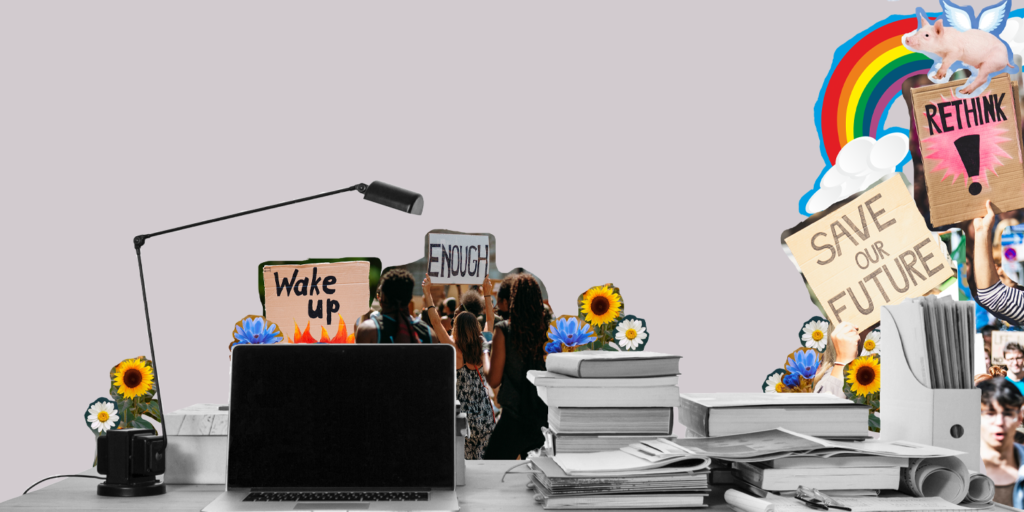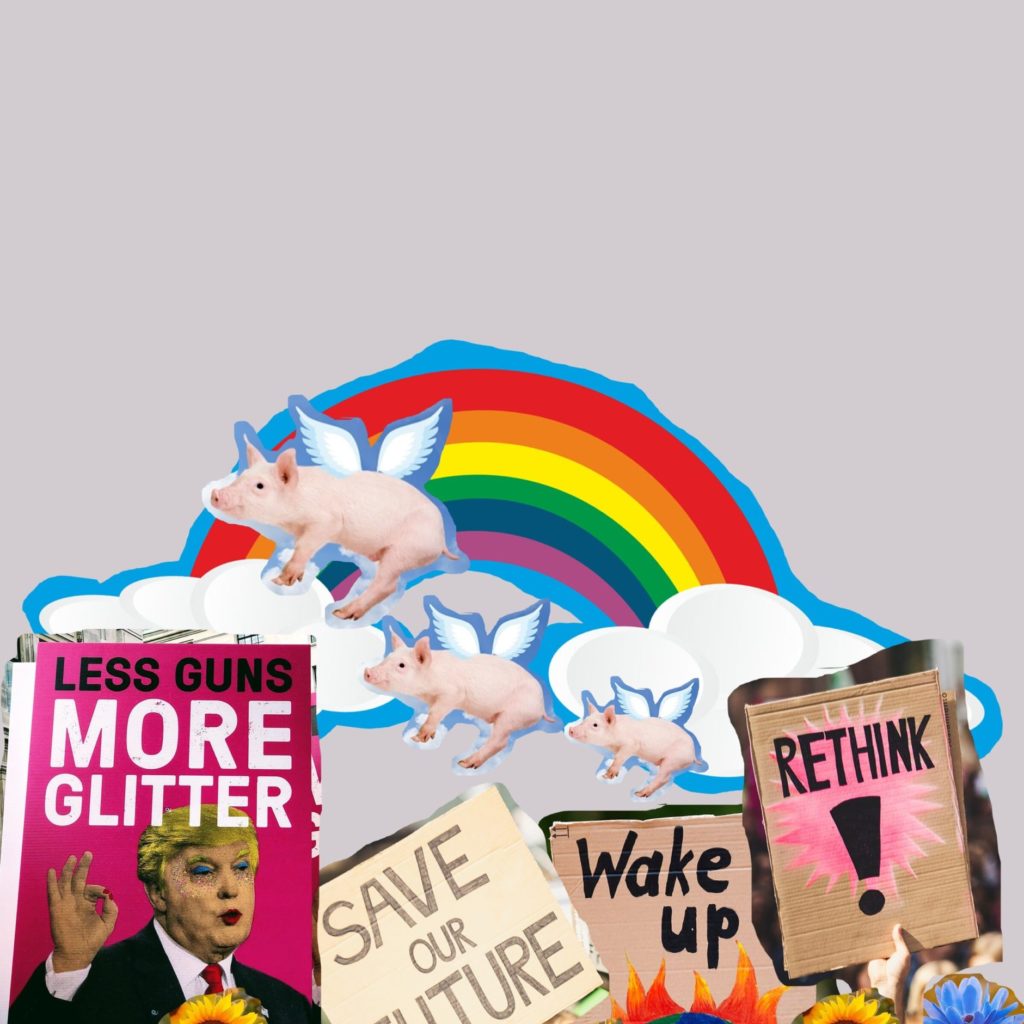Underestimating millennials is no longer cool

Dreamy, oversensitive, self-indulgent. For years, the image painted of millennials in the workplace has been wholly negative. The stereotype made millennials out to be underachieving and unworthy workers. However, recent research by Deloitte has revealed that these characteristics, which were once seen as failures, may be far more critical to the modern workplace than once considered. As noted by the President of the British Academy of Management, “The millennials have it right. The older generation have it wrong.”
The Deloitte Global Millennial Survey 2020 has revealed what issues are most important to those born between 1981-1996. Surveying on working life, what keeps them up at night alongside areas of improvement, they have been able to gain a firm grasp on the impetus behind the shifting millennial mindset.
From their results, there lay three common threads: mental health, the environment, and individual responsibility. These tell a compelling story for what’s to come when, or if, workplaces return back to normal.
As millennials are set to make up almost 40% of the global workforce by 2025, it’s no surprise that employers are intrigued by what keeps them ticking over. While we explore the morals and values behind this newfound ethos, we find that accommodating and embracing this change hasn’t been so easy for employers.
Your mind is a palace
According to Deloitte 44% of millennials were stressed all or most of the time, with half of the respondents saying they believe stress is a legitimate reason to take time off from work. According to Deloitte, millennials were the most inclined to consider mental health problems as important and stress in the workplace problematic.
Meanwhile, Business Insider reported that, “Because of longer work hours and stagnant wages, millennials suffer from higher rates of burnout than other generations.” The walls between office and home life have simply faded away during the pandemic, leaving room for the ‘millennial burnout’ to consume the home as well as the mind.
Rachel Connery, leader of mental health support group Mad Millennials, talked to us about how dangerous burnout can be. She says, “Such a large proportion of a millennial’s time is spent in the work environment, sometimes this outweighs the time we spend with partners and loved ones.” As a consequence, Rachel believes it’s now more important than ever that millennials feel supported at work. Facts are, ‘snowflake’ millennial crying in the toilets at work is no longer a laughing matter.
So what is the solution?
The hope is that as mental health awareness becomes imperative to our society, it will become imperative to employers as well. No, we’re not talking David Brent acting as a “friend first, boss second”. We’re talking real wellbeing policies that are incorporated in all aspects of the workplace dynamic, from the HR offices to the production line.
Thankfully, big businesses are starting to value their tech savvy, university educated millennial employees. Two months ago, food solutions firm Unilever introduced a four-day working week to their New Zealand offices in an attempt to address the toxic productivity its employees flagged as overwhelming when working from home. The pandemic has not only unearthed the mental health emergency that plagues our society, but also how this plague has overrun our offices.
It seems that the last 12 months have acted as a wake-up call for board rooms across the globe. As the burden of millennial stress in the workplace becomes normalised by those in charge, we can finally embrace our previously shunned moments of weakness.
It’s not always been easy being green
For years, millennials have been considered the ‘changemakers’ who will save the planet. The baby boomers who just can’t stop blaming climate change on their elders and question why the state of the planet is so dismal. But as it turns out Generation Why were onto something with their incessant curiosity. Becoming environmentally friendly is now one of the leading goals for businesses who want to keep their employees engaged and their PR spotless…
As Zoom culture set in, many started to realise that driving to the office for one meeting may be unnecessary. Greener thinking when it comes to transport and time away from the traditional office environment gave building designers time to rethink the sustainability of their office spaces.
Joseph Allen, Director of Healthy Buildings Program at the Harvard T.H Chan School of Public Health said, “Covid-19 has accelerated our corporate client’s interest in health. This is inextricably linked with work that is better for the environment.” The change incited by the pandemic has made room for millennial environmental concerns to be considered constructions start, ready for post-pandemic offices.
We hate to say I told you so, but it was bound to happen at some point.

Social justice warriors
Deloitte’s report found that a strong sense of social responsibility is a growing trend amongst millennials. In fact, “75% of millennials surveyed stated that the pandemic had highlighted new issues for them and made them more sympathetic towards the needs of others in their local community and around the world.”
For a long time, millennials preaching equality and racial justice were seen as self-indulgent and delusional. However, as the world wakes up to racial injustice and moves towards a more equal society, millennials are pioneering these movements and raising awareness in the workplace.
In a study released in 2019, The Case Foundationrevealed that “millennials are willing to be active about issues that affect them directly, along with being able to see themselves in the shoes of others who don’t look like them, speak the same language, have the same education, or come from the same background.”
Set to become the leaders of the global workplace by 2030, millennials are now starting to bring their social awareness into office culture, creating new standards for diversity.
A 2019 PWC report revealed that, “47% of millennials prioritize diversity when considering organizations as a future employer and roughly 40% of millennial workers report diversity as tantamount to creating the ideal workplace.” The fact that Deloitte found 71% of millennials feel that employers are doing well at creating a diverse and inclusive working environment proves that companies are taking seriously the social issues millennials consider a priority.
In the past nine months, the world has woken up to the need for a more inclusive and diverse working dynamic. We hope that as social warriors and future corporate leaders, millennials can change the way industries approach social issues and use the lessons of 2020 to build a better working world.
To a better future
Deloitte’s survey proves just how important millennials are for the future of the working world. The pandemic has forced employers to adopt change quicker, and it seems they’re finally ready to embrace the “shortcomings” of the millennial mind.